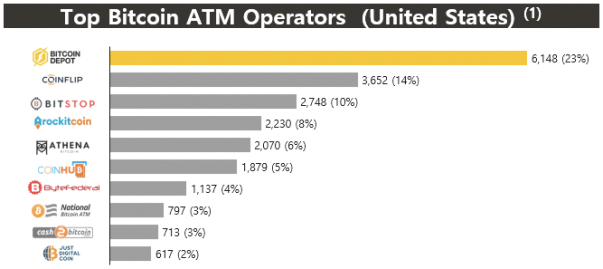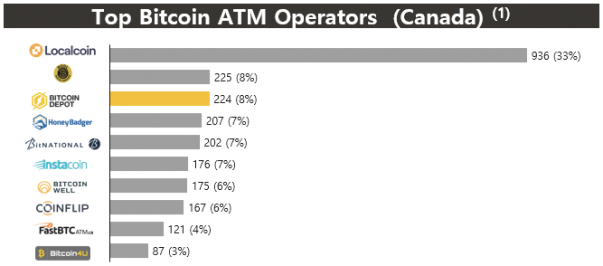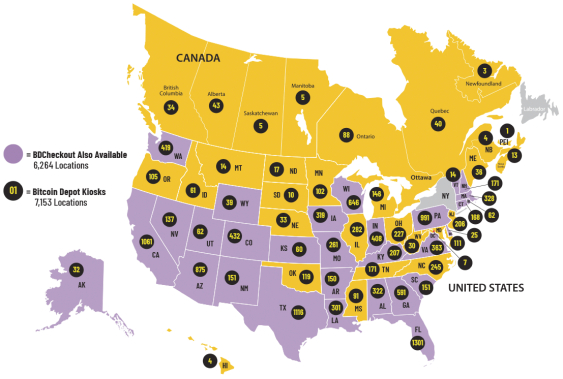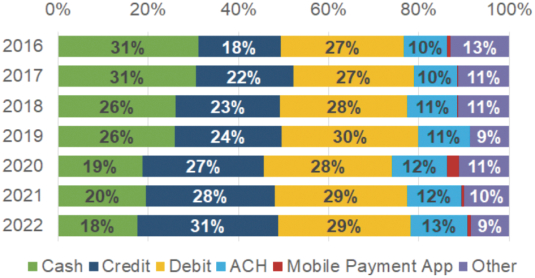The information in this preliminary prospectus is not complete and may be changed. These securities may not be sold until the registration statement filed with the Securities and Exchange Commission is effective. This preliminary prospectus is not an offer to sell these securities nor does it seek an offer to buy these securities in any jurisdiction where the offer or sale is not permitted.
Subject to Completion, Dated April 29, 2024
PRELIMINARY PROSPECTUS

BITCOIN DEPOT INC.
Up to 83,747,027 Shares of Class A Common Stock
Up to 43,848,750 Shares of Class A Common Stock Underlying Warrants
Up to 12,223,750 Warrants to Purchase Class A Common Stock
This prospectus relates to the issuance by us of up to 43,848,750 shares of Class A common stock, par value $0.0001 per share (the “Class A common stock”), of Bitcoin Depot Inc. (the “Company”) consisting of (i) up to 12,223,750 shares of our Class A common stock issuable upon the exercise of warrants (the “Private Placement Warrants”) that were originally issued in a private placement to GSR II Meteora Sponsor LLC, a Delaware limited liability company (“Sponsor”); and (ii) up to 31,625,000 shares of our Class A common stock issuable upon the exercise of warrants (the “Public Warrants” and, together with the Private Placement Warrants, the “Warrants”) that were originally issued as part of the units sold by GSR II Meteora Acquisition Corp., a Delaware corporation (“GSRM”) in its initial public offering. We will receive the proceeds from any exercise of any Warrants for cash.
This prospectus also relates to the offer and sale from time to time by the selling securityholders named in this prospectus or their permitted transferees (the “Selling Securityholders”) of the following:
(i) up to 83,747,027 shares of Class A common stock consisting of:
(a) up to 657,831 shares of Class A common stock held by former stockholders of GSRM, of which (i) 203,481 shares were issued pursuant to certain Voting and Non-Redemption Agreements (as defined below) at an effective purchase price of $0.00 per share and (ii) 454,350 shares were issued pursuant to certain Non-Redemption Agreements (as defined below) at an effective purchase price of $3.00 per share;
(b) up to 5,769,185 shares of Class A common stock held by certain third parties and affiliates of Sponsor and former directors of GSRM, in each case that were issued at Closing in exchange for an equivalent number of shares of Class B common stock of GSRM that were originally purchased for approximately $0.004 per share;
(c) up to 1,075,761 shares of Class A common stock issuable upon the vesting and conversion of the Company’s Class E common stock, par value $0.0001 per share (the “Class E common stock”), held by certain third parties and affiliates of Sponsor and former directors of GSRM, in each case that were issued at Closing in exchange for an equivalent number of shares of Class B common stock of GSRM that were originally purchased for approximately $0.004 per share;
(d) up to 59,100,000 shares of Class A common stock underlying the following securities held by BT Assets as of the Closing (which in each case were issued as consideration in the Business Combination based on a value of $10.00 per share): (i) 15,000,000 BT HoldCo Earnout Units, consisting of (A) 5,000,000 Class 1 Earnout Units of BT HoldCo, (B) 5,000,000 Class 2 Earnout Units of BT HoldCo, and (C) 5,000,000 Class 3 Earnout Units of BT HoldCo, and (ii) 44,100,000 BT HoldCo Common Units (which correspond to 44,100,000 shares of Class V common stock);
(e) up to 4,300,000 shares of Class A common stock issuable upon conversion of the Company’s Series A Convertible Preferred Stock, par value $0.0001 per share (the “Series A Preferred Stock”), which were purchased for $10.00 per share and issued at Closing and are held by the PIPE Subscribers pursuant to that



